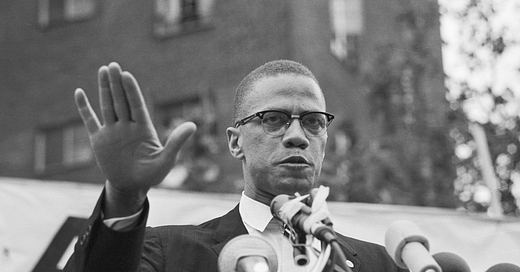The only thing power respects is power.
— Malcolm X
I’ve been thinking about that thing we call culture and I want to make a knock against that thing we call multiculturalism. Why? Because I once thought it was a good idea, and I have remarked lately at conferences I’ve spoken at that multiculturalism has gone horribly wrong. It started as a matter of ed…
Keep reading with a 7-day free trial
Subscribe to Stoic Observations to keep reading this post and get 7 days of free access to the full post archives.





